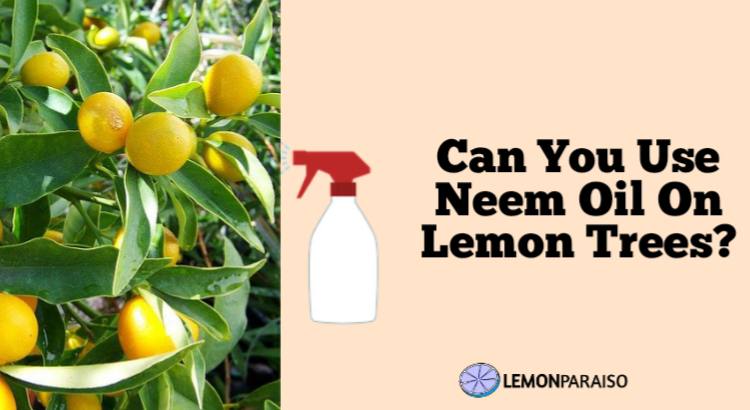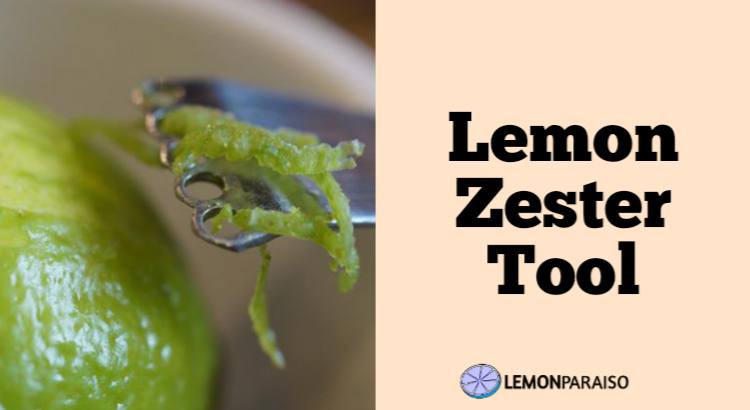Can You Use Neem Oil On Lemon Trees?

Lemon trees are a popular choice among gardeners due to their beautiful appearance and delicious fruit. However, like any other plant, lemon trees can be affected by pests and diseases that can compromise their health and productivity.
Neem oil, derived from the seeds of the neem tree, is a natural pesticide that has been used for centuries to protect plants from a wide range of pests and diseases.
Can You Use Neem Oil On Lemon Trees?
Yes, neem oil can be used on lemon trees as an effective organic treatment against various pests and diseases. Neem oil is derived from the seeds of the neem tree and has natural insecticidal, fungicidal, and miticidal properties. It is a popular choice among gardeners and farmers for its low toxicity to humans and pets, making it safe for use in home gardens.
When applied correctly, neem oil can help control pests such as aphids, whiteflies, and scale insects while also treating fungal infections like sooty mold and leaf spot. Moreover, it is a sustainable solution, as it biodegrades easily and does not harm beneficial insects like bees and ladybugs.
Is Neem Oil Safe For Lemon Trees?
Neem oil is generally safe for lemon trees when used as directed. It is a natural and organic pesticide that can help protect your lemon trees from pests and diseases without causing harm to the tree or its fruit.
However, it is important to use a neem oil product that is specifically formulated for use on plants, as some products may contain additives that are not suitable for use on lemon trees. It is also crucial to follow the manufacturer’s instructions for dilution and application rates to ensure the safety of your lemon trees.
How Do You Apply Neem Oil To Lemon Trees?
To apply neem oil to lemon trees, start by mixing the appropriate concentration of neem oil with water, following the manufacturer’s instructions. It’s essential to use a product specifically formulated for plants and to mix it with water in a spray bottle or garden sprayer. Before applying, shake the mixture well to ensure even distribution of the neem oil.
Spray the lemon tree thoroughly, covering all surfaces, including the leaves’ undersides and branches. The best time to apply neem oil is in the early morning or late afternoon to avoid direct sunlight and reduce the risk of burning the leaves. Reapply the neem oil every 7-14 days or as needed, depending on the severity of the pest or disease problem.
Can Neem Oil Be Used To Treat Pests On Lemon Trees?
Neem oil is an effective treatment for a variety of pests commonly found on lemon trees. It acts as a natural insecticide, targeting pests like aphids, whiteflies, spider mites, and scale insects.
Neem oil works by disrupting the insects’ life cycle, preventing them from feeding, growing, and reproducing. Additionally, it has a residual effect that continues to work for several days after application.
As a result, neem oil can be a valuable tool in managing pest populations on lemon trees and maintaining the overall health of the tree.
What Are The Benefits Of Using Neem Oil On Lemon Trees?
Using neem oil on lemon trees offers several benefits. It is an environmentally friendly alternative to synthetic pesticides, as it is biodegradable and has low toxicity to humans, pets, and beneficial insects. Neem oil effectively controls a wide range of pests and diseases, improving the overall health and vitality of the lemon tree.
The application of neem oil can also prevent pest infestations, reducing the need for more aggressive chemical treatments. Moreover, neem oil can enhance the tree’s natural defenses by boosting its immune system, making it more resistant to diseases and pests in the future.
Are There Any Precautions To Take When Using Neem Oil On Lemon Trees?
When using neem oil on lemon trees, there are a few precautions to consider. First, always follow the manufacturer’s instructions for proper dilution and application rates. Using too much neem oil can potentially damage the tree or its fruit. Apply neem oil during the cooler parts of the day, such as early morning or late afternoon, to minimize the risk of leaf burn.
Test the neem oil solution on a small, inconspicuous area of the tree before applying it to the entire tree to ensure that there are no adverse reactions. Be cautious not to spray neem oil on flowering plants or during the lemon tree’s flowering stage, as it may negatively affect pollinators like bees.
Additionally, wear protective gear such as gloves and goggles while handling and applying neem oil to prevent skin or eye irritation. Lastly, store neem oil in a cool, dark place away from direct sunlight and out of reach of children and pets.
Can Neem Oil Be Used On Citrus Trees Other Than Lemon Trees?
Neem oil can be used on various citrus trees, including oranges, grapefruits, limes, and tangerines, in addition to lemon trees. It is an effective and natural treatment for managing pests and diseases commonly found on citrus trees.
Just as with lemon trees, it is essential to follow the manufacturer’s instructions for proper dilution and application rates and to apply the neem oil during the cooler parts of the day to protect the trees from potential harm.
How Often Should Neem Oil Be Applied To Lemon Trees?
The frequency of neem oil application depends on the severity of the pest or disease issue on your lemon tree. In general, neem oil should be applied every 7-14 days for effective control of pests and diseases.
For preventive measures or minor infestations, applying neem oil every two to three weeks may be sufficient. However, it is essential to monitor the tree closely and adjust the application frequency as needed based on the tree’s health and the presence of pests or diseases.
Can Neem Oil Be Used On Lemon Trees During Fruiting Season?
Neem oil can be used on lemon trees during the fruiting season; however, care should be taken to avoid spraying the fruits directly. Neem oil is considered safe for use on fruiting trees, but direct contact with the fruits may cause discoloration or affect their taste.
To minimize the risk, it is best to apply neem oil when the tree is not flowering or fruiting. If treatment is necessary during the fruiting season, focus on spraying the leaves and branches while avoiding the fruits themselves.
What Pests Can Neem Oil Effectively Control On Lemon Trees?
Neem oil is effective in controlling a variety of pests on lemon trees. Some of the most common pests targeted by neem oil include aphids, whiteflies, spider mites, scale insects, and citrus leafminers.
Neem oil disrupts the pests’ life cycles, preventing them from feeding, molting, and reproducing, which helps to reduce pest populations over time. It is important to note that neem oil may not provide instant results, but its residual effects continue to work for several days after application, making it an effective long-term solution for pest control.
Are There Any Alternative Treatments To Neem Oil For Lemon Tree Pests?
There are several alternative treatments to neem oil for managing pests on lemon trees. Some of these include horticultural oils, insecticidal soaps, and beneficial insects such as ladybugs or lacewings.
Horticultural oils, like neem oil, are plant-based oils that can help control pests by suffocating them or disrupting their life cycles. Insecticidal soaps are another environmentally friendly option, which work by dissolving the outer layer of the pest’s body, causing dehydration and death. Introducing beneficial insects to your garden can provide natural pest control, as they prey on harmful insects that may infest your lemon tree.


